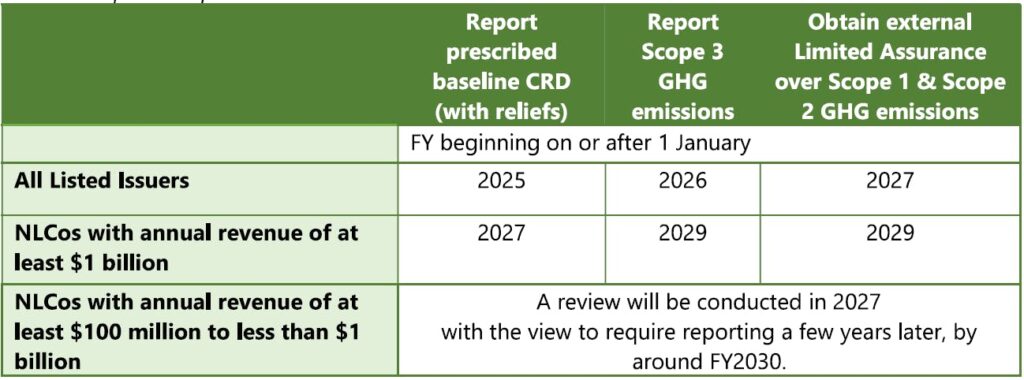Highlights:

Singapore’s major listed and non-listed firms may soon have to adhere to the International Sustainability Standards Board’s (ISSB) newly released standards for climate-related reporting. The Accounting and Corporate Regulatory Authority (ACRA) and Singapore Exchange Regulation (SGX RegCo) are seeking public feedback on this proposal until September, with finalized recommendations to come in 2024. The committee proposes mandatory climate reporting by FY2025 for listed companies and by FY2027 for large non-listed companies with annual revenue exceeding SG$1 billion. About 1,000 companies, including 300 non-listed entities, will be affected, making Singapore potentially the first in Asia to enforce ISSB-aligned climate reporting for NLCos.
Similar efforts are underway in Hong Kong and Japan, while Singapore plans to extend this requirement to private companies with SG$100 million revenue by FY2030, including an estimated 2,200 more firms. From 2028, Singapore-based firms operating significantly in the European Union must also comply with the EU’s Corporate Sustainability Reporting Directive (CSRD), which emphasizes a “double materiality” approach. Starting this year, listed companies in certain sectors must follow the Task Force on Climate-related Financial Disclosure (TCFD)’s recommendations. This mandate will expand to include more industries in 2024.

Upon implementing these changes, companies would not need to report their Scope 3 emissions in the first year. Two years post-implementation, however, limited assurance on Scope 1 and 2 emissions will be required, following standards modeled on the International Standard on Sustainability Assurance (ISSA) 5000 or International Organization for Standardization (ISO) 14064-3. Singapore also plans to enhance national capabilities in sustainability reporting and managing carbon emissions starting 2024, backed by a SG$180 million fund. Concurrent use of other reporting standards such as the Global Reporting Initiative (GRI) will also be permitted.